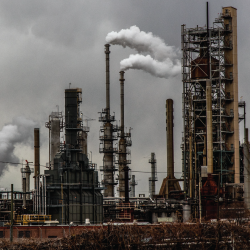The Interconnected Energy and Food Crisis is Far Worse Than Most Americans Realize
FOOD CRISIS
@OrganicConsumer | | Read the Full Article
Richard Heinberg writes:
“If tractor fuel is getting more expensive, you might think that would put pressure on food prices—and you’d be right. But that’s only one reason the cost of food is skyrocketing. Nitrogen fertilizer, made from natural gas, is seeing unprecedented price hikes, largely as a result of the Russia-Ukraine war. In response, farmers everywhere are preparing to test the limits of how little fertilizer they can apply without threatening yields. Forecasts are bleak…
For many years, organic and ecological agriculture advocates have argued that the world could produce just as much food without resorting to fossil fuel-based fertilizers and pesticides. But their alternative methods require knowledge and time for transition. Going cold turkey on fertilizer without planning and preparation will almost certainly lead to sharply lower yields over the short term. In response, the EU is now delaying rules intended to reduce farming’s environmental impacts, including curbs on pesticide use. It also aims to put four million hectares of fallow land into cultivation.
Food security is being threatened by problems with distribution chains for all the inputs into agricultural system—from spare parts to packaging to cooking fuel. Once again, as with energy prices, there are several mutually interacting causes, including lingering effects of the pandemic and the Russia-Ukraine war. The latter has led to the loss of wheat shipments from Ukraine and Russia, which together are responsible for nearly 30 percent of world supplies.”
Read more: The Energy and Food Crisis Is Far Worse Than Most Americans Realize

